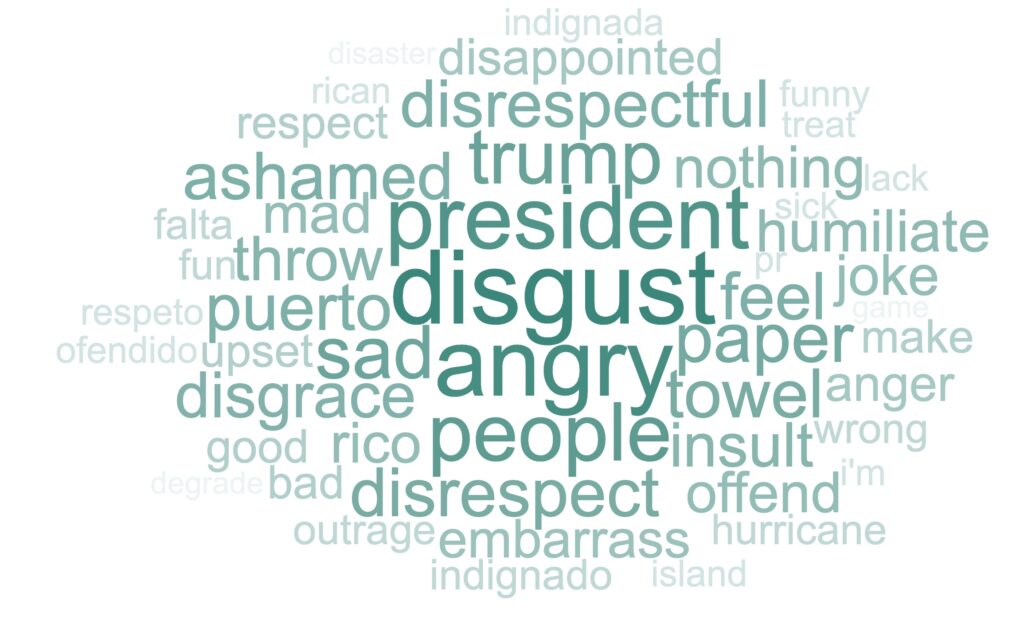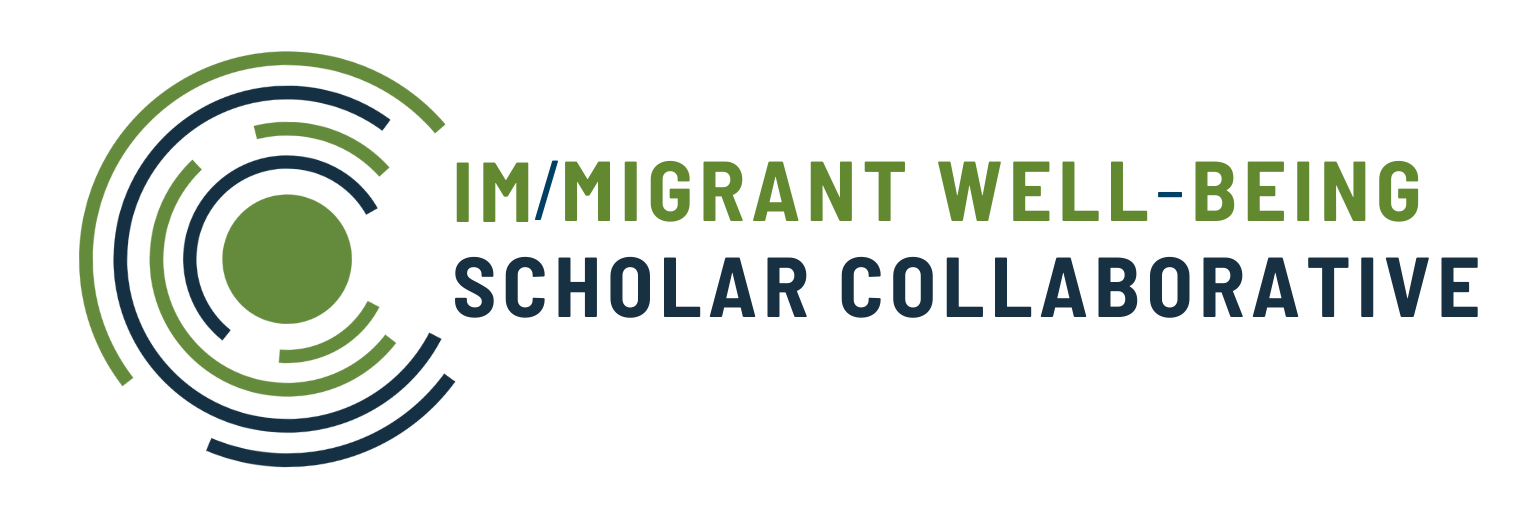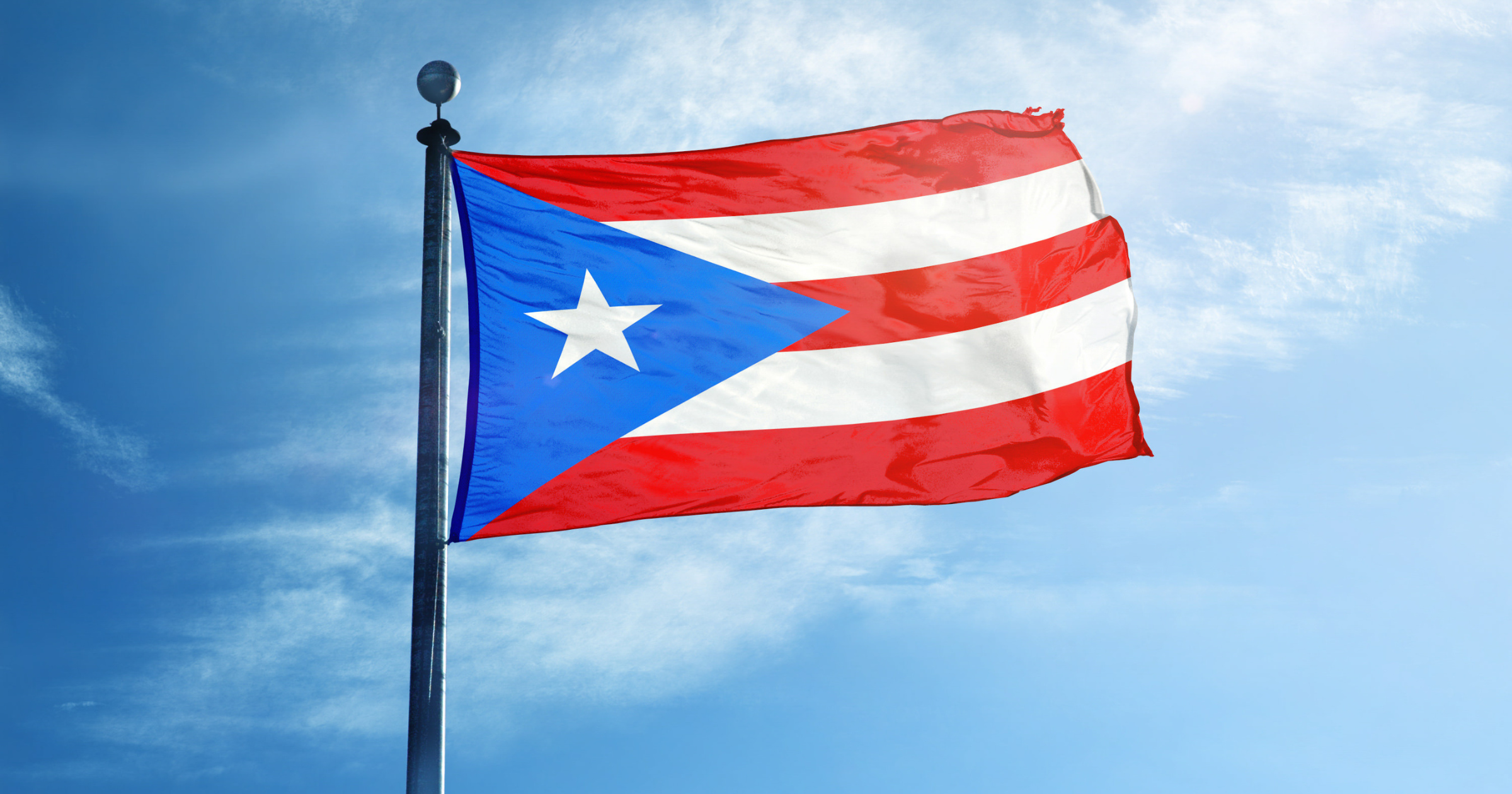At a rally sponsored by the Trump campaign at Madison Square Garden, a comedian who was warming up the crowd alluded to Puerto Rico as a “floating island of garbage”. There has been much backlash to this “joke”, with many conservatives, including vice-presidential candidate J.D. Vance, lamenting that people can no longer take a joke. For Puerto Ricans, however, this was not the first time former President Trump had insulted them as a people. In 2017, after near-category 5 Hurricane Maria devastated the island, Trump downplayed the casualties, accused Puerto Ricans of wanting everything handed to them, and on his visit to tour the devastation, threw paper towels into the crowd of observers. Many have noted that this latest insult opened the wounds created by Trump’s insensitivity during this time. While that certainly may be the case, I would argue that the wounds go back further than that.
In 2018, my colleagues and I carried out a survey of around 500 Puerto Ricans living in the 50 states to assess the impacts of the hurricane on both those who had moved stateside afterward and members of the diaspora. We wanted to not only understand the impacts of the storm, but also Puerto Ricans’ attitudes toward the response to the disaster, the measures taken to address the island’s financial crisis before Hurricane Maria, and how these events might impact the 2018 midterm elections.

A word cloud captures their responses, with the larger words representing the most frequent responses, and the smaller words the less common answers.
Survey respondents were shown a picture of the former president throwing paper towels into the crowd and they were asked how they felt about seeing this image. Participants felt disgust, anger, sadness, humiliation, disrespect, and insult. Others felt nothing. However, these were not the results that caught our attention the most. We also asked respondents how much they agreed or disagreed with several statements related to the financial crisis in Puerto Rico, that culminated in Congress passing the Puerto Rico Oversight, Management, and Economic Stability Act, (PROMESA) bill in 2016. This act established the Financial Oversight and Management Board (or La Junta, as it is known), to develop a plan to restructure Puerto Rico’s debt and “achieve fiscal responsibility”. Two of the statements we posed were: “Puerto Rico’s colonial status limits the control it has over its financial situation (e.g., apply for bankruptcy)” and “The fiscal board established under the PROMESA Act (known as La Junta) is doing a good job in restructuring Puerto Rico’s debt.”
Over three-fourths (77 percent) strongly agreed, agreed, or somewhat agreed with the first statement (with most of this group strongly agreeing). While 43 percent strongly disagreed, disagreed, or somewhat disagreed with the second statement (only 34 percent strongly agreed, agreed, or somewhat agreed to the latter). These findings tell us that Puerto Ricans are keenly aware of the impact of their colonial status on options to come out from the financial crisis, with most of them negatively evaluating the “solution” imposed by Congress.
When the comedian at Trump’s rally insulted Puerto Rico, the slight was not only reminiscent of the paper towel incident but also a reminder that for 126 years, Puerto Rico has been a colony of the U.S. and has been treated as such throughout this time. The austerity measures imposed by PROMESA have made life intolerable for Puerto Ricans, negatively affecting their communities, their families, and their livelihoods, so much so that many have had to leave the place they call home in search of a better quality of life stateside. This is not to downplay the negative impact the “garbage” remark on Puerto Ricans on the island and in the mainland U.S. However, it is to say that policymakers on both sides of the aisle have to more deeply examine the colonial policies toward Puerto Rico to really understand the injuries inflicted on the people of this island. Given his track record with Puerto Rico, I do not have high hopes that Trump would do this if he won the election. However, should Harris win, my hope is that her administration would seriously consider decolonizing Puerto Rico and afford us with the respect we deserve.
Dr. Elizabeth Aranda, Co-Chair of the Im/migrant Well-Being Scholar Collaborative, Professor of Sociology and Director of the Immigrant Well-Being Research Center in the College of Arts and Sciences at the University of South Florida
The views expressed in op-eds by Collaborative members are solely those of the author(s) and do not necessarily reflect the views of the Im/migrant Well-Being Scholar Collaborative as a whole.

